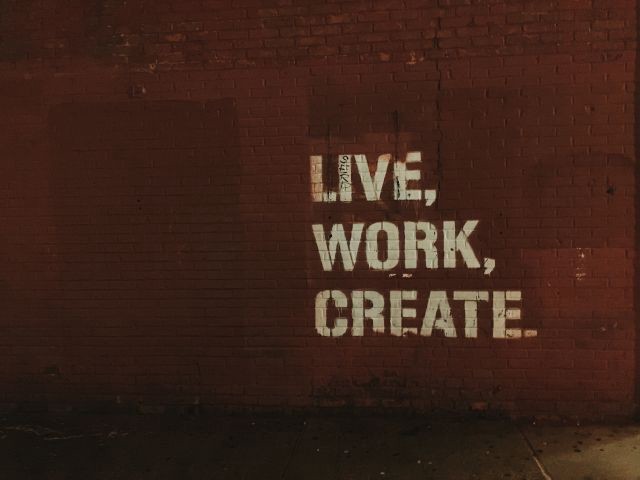The last two years have been a series of stops and starts, hope and frustration, and sometimes even resignation, like revving a faulty car ignition. Since 2020, COVID-19 has rerouted our personal and professional lives. Today, over two years later, before the world returns to its new form of normalcy, it’s imperative that we assess the changes undergone by small business owners, entrepreneurs, and society to inform human-centered business practices moving forward.
COVID-19 has revealed national and worldwide systemic issues from a fundamentally human perspective. While these cracks in our infrastructure impact everyone, our less protected groups are at the most significant risk. For instance, according to the World Economic Forum, women were already spending 16 billion hours on unpaid domestic labor and childcare before the pandemic, representing about a tenth of the world’s entire economic output if said labor was paid fairly. However, now that the pandemic has made itself a home in our world, more than 28 million women over 25 years of age have left the workforce on average, compared to 24 million men. As a result, the pandemic is estimated to force an additional 47 million women and girls into extreme poverty globally.
Children are another prime example of the pandemic’s silent sufferers. Kids typically receive the majority of their socialization at school. But with school shutdowns, this lack of socialization manifests in unexpected ways. Due to online school, many children miss evident skills in mathematics and English subjects. A McKinsey and Company study revealed that most are four months behind their grade level. Even yet, perhaps more shocking is the practical life skills children lack. Many kids struggle to reach milestones that most non-disabled people take for granted. This involves tying one’s shoes, cutting with scissors along a dotted line, or unscrewing a bottle cap. On top of these knowledge gaps, kids are under incredible stress in the classroom and at home. Some children as young as ten years old have taken on caregiver roles for their younger siblings, and many teenagers have been pushed into the workforce with part-time jobs to help provide for their families.
Small business owners, entrepreneurs, and workers also feel the effects of the long-lasting pandemic. Offices became vacant as employees adjusted to working from home. Coworkers grew emotionally distant from one another as they did physically while remaining six feet apart and wearing masks. Working from home dissolved the boundary between work and home life. Many employees were expected to work remotely while simultaneously caretaking for children or elderly parents.
In essence, we have been living in a state of long-term crisis. So, let’s return to basics. What does our species require to survive?
– Shelter and safety,
– nutritious foods and clean water,
– physical connection,
– emotional intimacy and trust in those around us, and
– various levels of social connection.
With quarantines, lockdowns, and social distancing, many of these needs have become increasingly challenging to acquire. We can turn to hope. As a global community, we can decide what our new world looks like. Moreover, we can actively shape our current and future realities by revolutionizing our business practices.
New Rules of the Game
After these past two years, some businesses began to return to the office. We must reconstruct the boundaries between work and home life to accomplish this. Operating remotely has been vital to maintaining our health while continuing to work. However, it has also increased the prevalence of the phenomenon known as workplace burnout. Due to isolation, lack of privacy, and increased non-work burdens like a child or elderly care, workers feel exhausted, depleted of energy, mentally distanced, and emotionally cynical towards their work. According to a medically reviewed article by Everyday Health, the World Health Organization describes this as majorly reducing “professional efficacy.” The risk of work stress tipping into burnout increases as the pandemic continues.
So, how do we redefine this boundary? With new rules, of course. Workers are people first, so humanity — not just business — must be our primary focus. Data from the Wilson Center suggests that the pandemic will have destructive “long-term effects on women’s health and economic standing, and thus our societies and economies.” This issue calls for an intersectional, inclusive approach to tackle the needs of diverse communities such as migrant women, Black, Indigenous, and other women of color, and LGBTQ+ people. By banding together to bring work-life balance front and center, people can transition from feeling more drained and dissatisfied at work and in their personal lives to feeling valued and passionate in both spaces.
One option for achieving a more outstanding work-life balance is the much-debated four-day workweek. This new way of working has enhanced business productivity, employee health, and families and communities. It also challenges gender inequality and creates more sustainable work cultures. When practicing this work model, 63 percent of businesses had an easier time attracting and retaining talent, and 78 percent of employees reported being happier with lower stress levels. However, this shift requires employers and employees to reevaluate their goals and workplace culture radically.
Like the four-day workweek, embracing a remote work model can offer more significant benefits than working full-time in-office. People report being less distracted by coworkers when working from home and less time avoiding work. According to an article by Apollo Technical, remote work can increase performance by 13 percent and productivity by up to 77 percent. The main drawback of this model is loneliness due to isolation, which negatively impacts peoples’ mental and physical health while also lowering their productivity and work satisfaction over time. Therefore, many companies opt to practice a hybrid work model, where employees choose to work remotely or in the office on any given workweek. With these new rules, we can consolidate past business methods with modern ones, effectively raising employee satisfaction and reducing the risk of burnout.
The Guide to Return to Work
With traditional principles becoming an idea of the past, business owners need to adjust to a new business model that values work-life balance and prioritizes it. For example, companies should build time for workers with children to send them to school and manage extra responsibilities at home. As mentioned above, remote work offers both positive and negative effects. Working remotely results in higher productivity, but a lack of workplace socialization can be hampered over time. On the other hand, the hybrid work model grants workers more agencies to reduce stress and allows for greater creative output and improved well-being.
A Simple Rule Book
Here are a few simple guidelines for a more productive and human-centered business model of the future*:
– Everyone works from home on Fridays.
– Parents who are working from home can start work at 10 a.m.
– Everyone works in the office on Wednesdays.
– People can work in the office on Mondays and Wednesdays, or Tuesdays and Thursdays, as a hybrid schedule.
– The office is centralized for socialization.
*These rules should be customized to the needs of each unique business and community.
Summary
More than two years into the pandemic, the curtain concealing our country and the world’s systemic issues targeting vulnerable communities has been opened. Therefore, now is the time to recognize that we are uniquely positioned to create new, more human-centered modes of business operation. We must seize this opportunity and create a more humane world, embracing intersectionality to support women, People of Color, and other minority groups. We can achieve our ideal future by conducting compassionate business.



